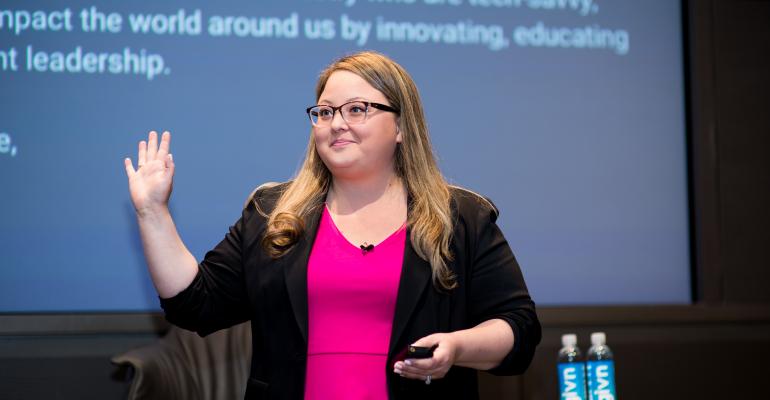Liz Caruso, CEO and Chief Event Specialist at Liz King Events and founder of TechsyTalk, a community for innovators in the events industry, shares her thoughts on how people will meet again, including some low-tech solutions.
MeetingsNet: What changes do you think will happen to face-to-face events due to the pandemic?
Liz Caruso: Certainly for the near future, we are going to have to be very aware of crowd management and social distancing practices. We will have to see some serious changes in terms of the size of gatherings, the way we certify that people are healthy, and possibly even a reduction in the overall size of events for the next year or two until vaccines can be provided. All that being said, I also think that all of this social distancing has reminded people about why meeting face-to-face is so important, and I think there will be a hunger for meaningful interactions as soon as it is safe to do so.
MeetingsNet: What do you hope won’t happen?
Caruso: I hope people don’t become afraid of crowded situations for an extended period of time. I think it is natural and fairly smart to be wary of large gatherings after something like this, but I hope we can put procedures into place that make people feel comfortable again. I have seen some interesting ideas, like dogs being trained to sniff out the virus and even large-scale temperature taking.
MeetingsNet: What opportunities you think the pandemic may present to the industry?
Caruso: As with any crisis, these challenging times do give us an opportunity to rethink how things are done and it creates space for innovation. It helps us to get out of the “way we’ve always done things” mindset and think of how we can optimize the attendee experience, communicate, manage risk, and make our events even better in the future. I have already seen how it is making us question terms in our contracts, think about capacities at venues, and other logistical issues.
I believe this time of social isolation has been a reset for the general public. They were already trending toward wanting more meaningful interactions. If we want them to buy a ticket and participate, we need to make sure they are getting true value.
In practical terms, I will not be surprised if we see more GPS tracking and similar tactics. This reflects what we are already seeing in the industry in terms of RFID (radio-frequency identification) and NFC (near-field communication) and of people’s changing comfort with technological access to their movements and interactions.





